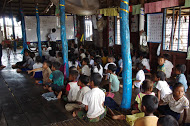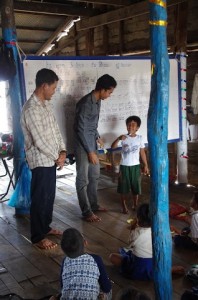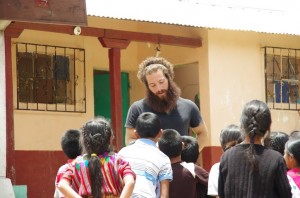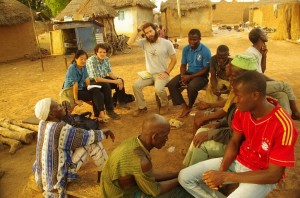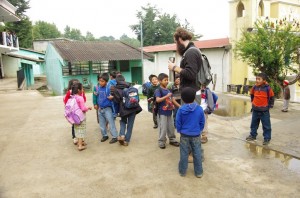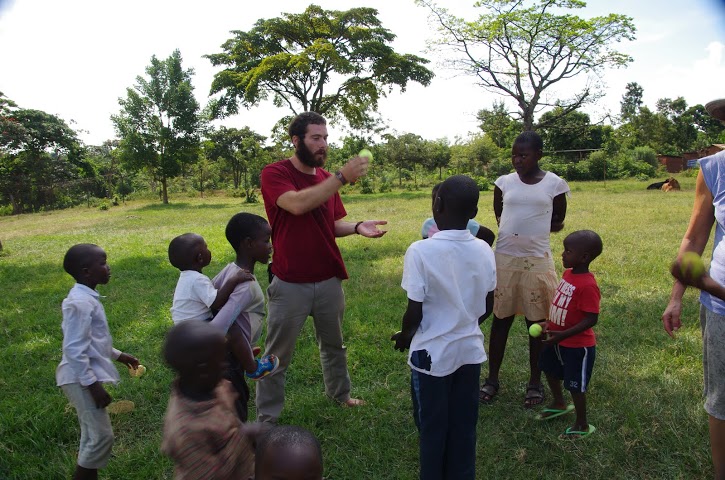
Reimagining volunteer service: Lessons learned from Pathfinders Project
By AdministratorAfter talking about it for almost the entire trip, the Pathfinders finally watched The Princess Bride together in Guatemala. And now that I am tasked with writing a wrap-up piece for this incredible, indescribable first-of-its-kind year of international service, I cannot help but think of Inigo Montoya’s famous line as he prepares to describe the predicament faced by the heroes at the end of the movie:
“Let me ‘splain. No, there is too much. Let me sum up.”
So let me sum up. From July 2013 through June 2014, the Pathfinders contributed approximately 6,000 hours in support of education, human rights, environmental conservation, and clean water organizations in Asia, Africa, Latin America, and the Caribbean. We taught basic English to children and monks in rural Cambodia, and comparative religion, computers, science, math, and literature to students in rural Uganda. We raised money and the online profile for a women’s rights organization in Accra, Ghana, and furthered the research into human rights abuses against alleged witches in the Northern Region. We worked alongside Dominicans and Haitians to construct twenty latrines in the mountains of La Fond-Jeannette, Haiti, and beside Ecuadorians to construct a purification center that is now bringing safe, affordable water to the residents of Isla Puná. We helped implement sustainable environmental practices for several businesses and families in Minca, Colombia, while also developing classroom resources to aid the educational programs there. We helped provide a safe after-school environment for at-risk children from the slums around the Guatemala City garbage dump and increased access to technology and special education resources for students and staff in three Mayan communities in rural Guatemala.
These projects gave us the opportunity to break through strong cultural, linguistic, and religious barriers and forge lifelong connections with the people we met and with each other, proving that values transcend belief systems and can be an alternate source of affinity among people of diverse backgrounds. Moreover, these connections are a testament to the potential of shared work to bind people together in service toward a common cause.
As the Pathfinders worked alongside community members to implement sustainable solutions, we also learned invaluable lessons for the development of the Humanist Action: Ghana. The most critical of these lessons was that the amazing power of service to bring people together can only be harnessed if we face, head-on, the biases we have about volunteering. And this is exactly what we must do if we want to depart meaningfully from the many harmful service models that are out there, if we are going to launch a Humanist Action: Ghana that is more than just humanist in name.
Our goal as humanists is to empower others through service, and we should do so by designing and participating in projects that address existing resource imbalances without reinforcing the social consequences of those imbalances. This means, first and foremost, that volunteers should seek to work where they are invited. For local residents and organizations, the solicitation of assistance and partnership from volunteers can itself be an empowering first step.
Wherever possible, projects should find ways to leverage the strengths of communities, not focus on their weaknesses. Service should not imply a relationship in which the volunteer gives and the member of the served community receives. This is as much about reframing the way we perceive the people and communities we help as it is about reframing the way they perceive themselves. And it is about reframing the way we think about service. Service should be a relationship in which volunteers work hand in hand with the members of the served community to solve problems the community identifies and implement strategies the community devises. Through such a relationship, the volunteer celebrates what the members of the community served have to offer, rather than the other way around.
Pathfinders Project was an important step away from deficit-minded service toward a volunteering model in which the experiences, skills, and ideas of all involved are leveraged to realize the vision of the community being served. The next step is to build from that philosophy and the data collected by the Pathfinders to launch the Humanist Action: Ghana. Want to be a part of the next phase of humanist leadership and service, the first permanent international humanist volunteering initiative? Sign up here to receive updates about Humanist Action: Ghana developments.

